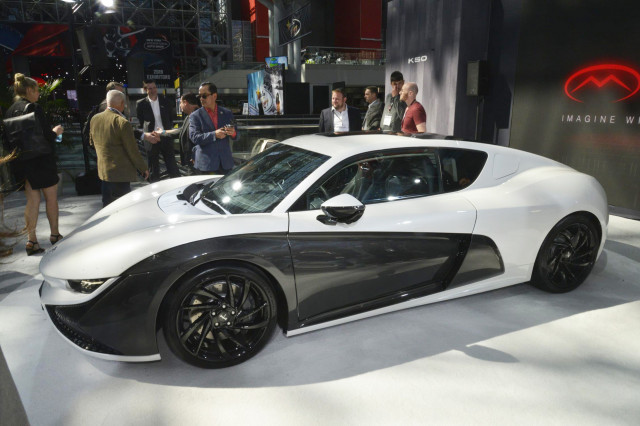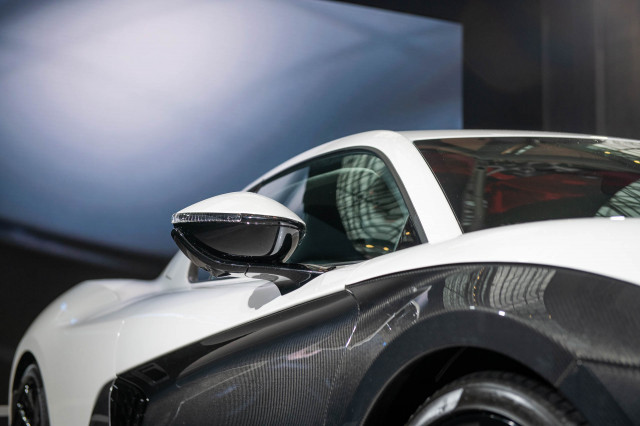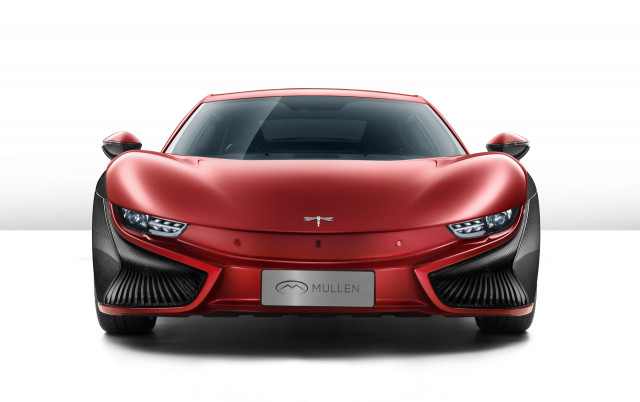Follow Bengt

Qiantu K50 by Mullen, 2019 New York auto show
The glamorous, supercar-shaped, Chinese-built Qiantu K50 that was shown last week at the New York auto show garnered much attention and likely changed some attendees’ conceptions of what kinds of vehicles might be imported from China.
Importing the K50 directly from China isn’t what U.S. company Mullen Technologies exactly plans, though. The company announced Wednesday that it signed a letter of intent to assemble the Qiantu K50 near Spokane, Washington.
The facility could be up to 1.3 million square feet and include assembly and manufacturing, as well as research and development.
DON’T MISS: Qiantu K50: Quirky, curvaceous electric two-seater coming to the U.S. next year?
According to a report by Spokane Public Radio, citing the West Plains Airport Area Development Authority, Mullen expects that the operation will employ 55 initially, with up to 860 jobs by 2026. Mullen will lease the facility from the development authority, which will issue bonds to build the plant.

Qiantu K50 by Mullen, 2019 New York auto show
The K50 is carbon fiber bodied, and initial plans include the shipment of the car’s complete panels from China to Washington where it will be mated to the body and chassis, which are also shipped from China. Washington is also the home of SGL Carbon, which supplies carbon panels for the BMW i3; that’s in Moses Lake, about 100 miles away from Mullen’s facility.
CHECK OUT: Karma presents its electric-car vision to China and vies for partners
The facility will include “an air handling system to optimize the battery call life,” the company says in a press release—a detail that we assume refers to how packs are assembled, although we’ve reached out to the company for clarification as initially the company will be receiving complete packs from China.
Mullen also confirmed Thursday something it hadn’t last week at the New York show: the North American version will have a revamped battery pack powering the K50.
“With the innovation Mullen Energy has underway the lithium batteries powering the sports car would be 30 percent lighter and would significantly increase the overall range of the vehicle,” the company said in a press release.
READ MORE: Chinese electric sports car Qiantu K50 might be made in U.S., with Coda connection
This innovation likely comes at least in part via failed automaker Coda. Mullen purchased the remains of Coda and holds Coda’s intellectual property rights, and last week Mullen chief technical officer Frank McMahon called that company’s former battery management system the most relevant piece they hold from Coda, moving forward.

Qiantu K50 by Mullen
There’s one big asterisk to Mullen’s plans: It still needs to homologate the Q50 for the U.S. That may require additional side-impact beams to be placed on the vehicle, lighting moved, or other changes.
Mullen likely will need to raise further funds for ongoing research and development, as well as assembly. That said, it’s looking increasingly likely that we’ll see not just the K50 on U.S. roads but also other future electric vehicles from them as well.